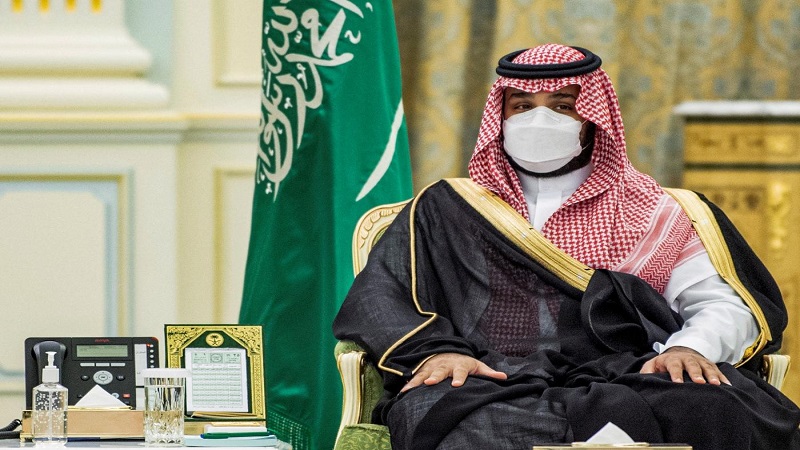Saudi Arabia’s crown prince on Tuesday struck a conciliatory tone towards its regional rival Iran, saying he sought “good and special” relations, after sources said the rivals held secret talks in Baghdad.
The two countries cut ties in 2016 after Iranian protesters attacked Saudi diplomatic missions following the kingdom’s execution of a revered Shia cleric.
“Iran is a neighbouring country, and all we aspire for is a good and special relationship with Iran,” Mohammed bin Salman said in a television interview broadcast late Tuesday.
“We do not want Iran’s situation to be difficult. On the contrary, we want Iran to grow… and to push the region and the world towards prosperity.”
He added that Riyadh was working with regional and global partners to find solutions to Tehran’s “negative behaviour”.
The remarks mark a major change in tone compared to bin Salman’s previous interviews, in which he lashed out at Tehran, accusing it of fuelling regional insecurity.
The prince did not mention any negotiations with Tehran.
The talks in Baghdad, facilitated by Iraqi Prime Minister Mustafa al-Kadhimi, remained secret until the Financial Times reported that a first meeting had been held on 9 April.
Lebanon and Yemen are the top priority for the Iranian and Saudi negotiators, Iraqi officials familiar with the dialogue told Middle East Eye last week.
The Iraqi officials, along with politicians familiar with the progress of the talks, said that Iraq was not part of the discussions at this stage and that the focus has instead been on other issues the two parties see as priorities.
Stopping Houthi attacks on Saudi oil installations and finding a way out of Lebanon’s political deadlock were reported to be top of the agenda.
“The meetings are still in their infancy, but they are continuing. Both of them need several rounds to break the ice and build confidence between them, especially since the rift has extended for a long time, so they need time before any results emerge,” a senior Iraqi official familiar, who wished to remain anonymous, told MEE.
“For us, we arranged the appropriate conditions for them, provided them with a place, and guaranteed them secrecy. What remains is related to them and not to us.”
Riyadh has officially denied the talks in its state-backed media while Tehran has not commented, asserting only that it has “always welcomed” dialogue with Saudi Arabia.
Few differences with Biden administration
The Iraqi initiative comes at a time of shifting power dynamics, as US President Joe Biden is seeking to revive the tattered 2015 nuclear deal that was abandoned by Donald Trump.
Saudi Arabia and Iran have backed opposite sides of several regional conflicts, from Syria to Yemen, where a Saudi-led coalition is fighting the Houthis.
Iran supports the Houthi rebels, who are battling the coalition that intervened in Yemen’s war in 2015.
The rebels have also stepped up drone and missile strikes on Saudi targets, including its oil facilities.
Ansarallah, as the movement is officially known, demands an end to the Saudi-led air, water and land siege of rebel-held Yemen that is exacerbating the severe humanitarian crisis afflicting the country.
In February, Biden announced the end of US support for offensive operations by the coalition, in a major policy reversal from the previous administration.
“This war has to end. And to underscore our commitment, we’re ending all American support for offensive operations in the war in Yemen, including relevant arm sales,” Biden said in his first major foreign policy speech.
In his interview, Mohammed bin Salman that the US was a strategic partner and that Riyadh had only a few differences with the Biden administration which it was working to resolve.
The prince also said the kingdom would not accept any interference in its internal affairs and renewed calls for a ceasefire and negotiations with the Houthi rebels.
Source: Middle East Eye






 WhatsApp us
WhatsApp us 

